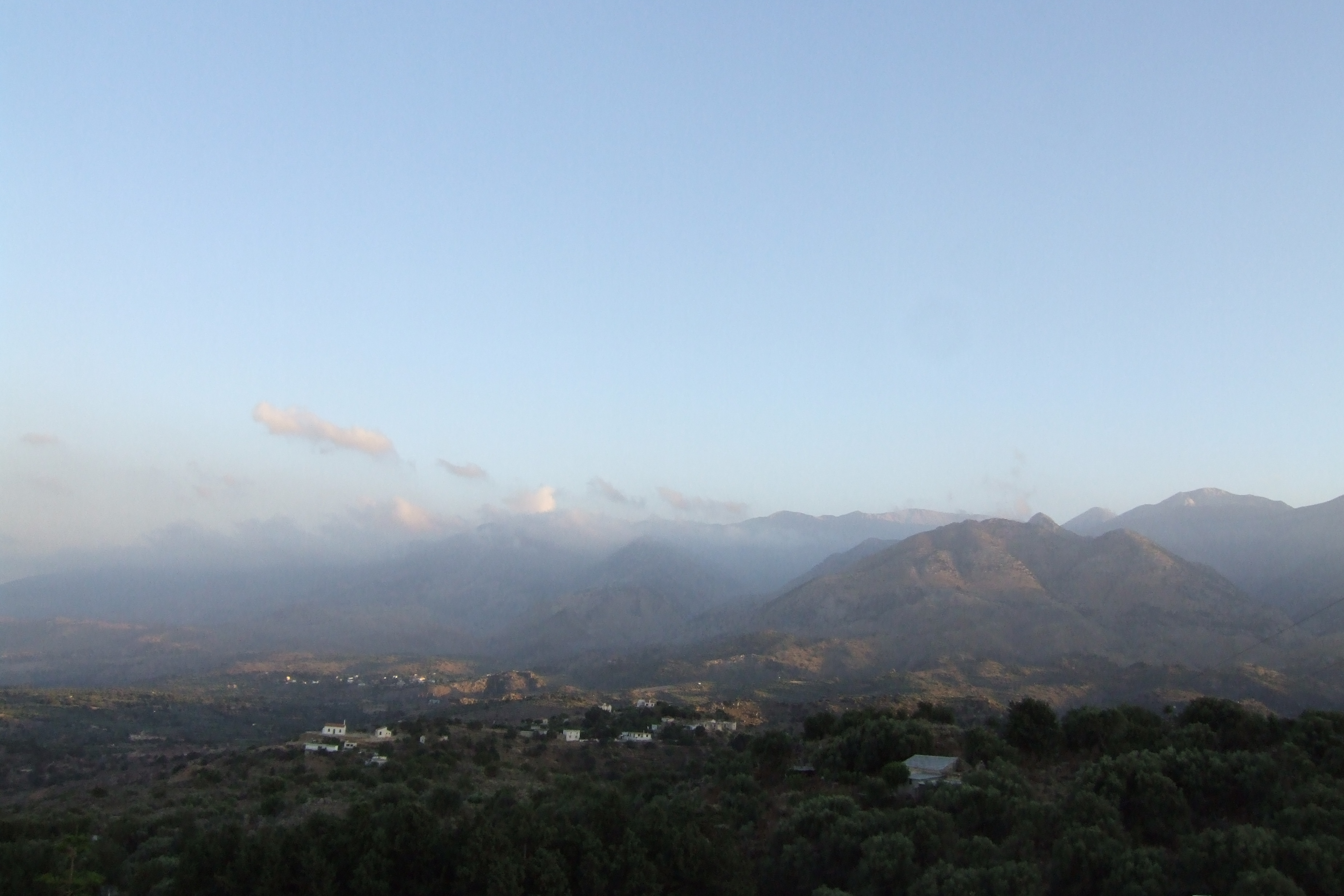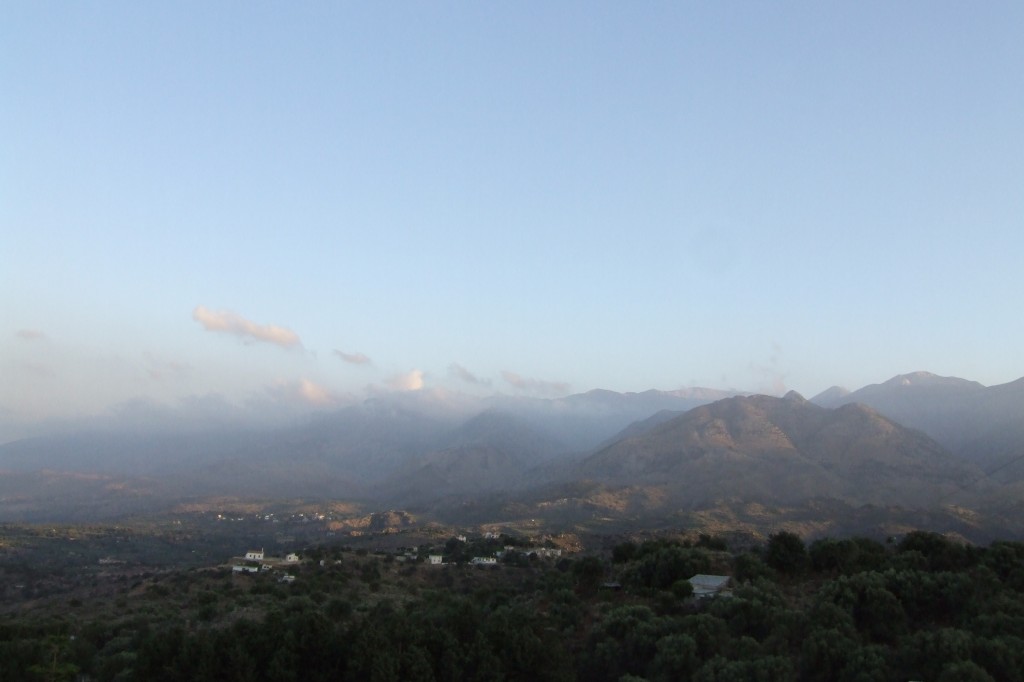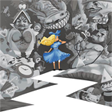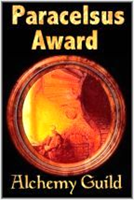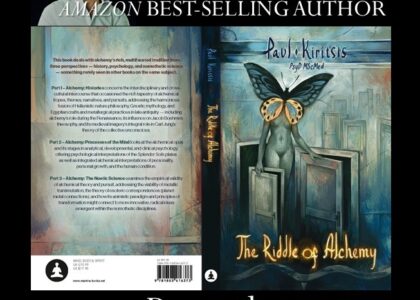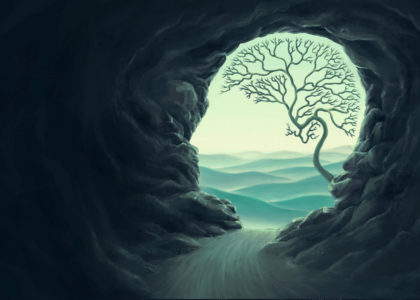A consequence of any chosen lifestyle is that there is bound to be ample repetition. We awake every morning to a set of painstakingly tedious and mindless tasks. Some of these are unconscious and related to the autonomic nervous system; we digest food, respire, perspire, salivate, urinate, and become sexually aroused. Others encompass some degree of consciousness but become so rudimentary to our everyday existence that their function is taken over by the narrowest and lowest faculty of the mind, the robot. More often than not we find ourselves getting up from the same side of the bed and repeating the same actions over and over. Even before one becomes fully conscious he or she knows what the day has in stall. If you’re a businessman or woman you’ll probably have to spend another day dealing with customers on the phones and in the office. If you’re a teacher you have a horde of children, teenagers, young adults, or mature age students awaiting tuition. If you’re a writer thousands of words are floating about in mind space awaiting conscious expression. Whatever your profession may be you know exactly what you’ll be doing, when you’ll be doing it, how long you’ll be doing it for, and what you can expect from it. This vicious unrelenting cycle generates a great many adverse effects including boredom, futility, and absurdity. When people are robbed of the spontaneity and novelty of new experiences life is reduced to a conventional set of exclusive symbols that transcribe their fate.
Knowing what’s to come can be one of the most disenchanting sentiments known to humankind. We become mindless zombies on a conveyer belt of a communal factory that is mass producing interrelated products to satisfy the collective will of a handful of institutions. The irony of our situation is that most of us will work hard funding institutionalized operations that are pretentious and corrupt so that they might feed us with a crummy leftovers and scrappy peanuts. With ventures of this type there is little to no room for the full-fledged expression of an individual will or respect for the creativity of the human spirit. How many times have we heard the words “Why am I even here?” or “This is such a huge waste of my time” erupt from peoples’ mouths? How can a dismal and repetitive mode of being full of psychic thunderstorms and tornadoes that force one to question their own existence actually be reconciled with an unconscious inner trend to seek transformation and enlightenment through personal growth? Any logical argument would posit that it can’t. It’s just not normal to feel destitute, accidental, second-rate, and insignificant. It’s an insult to the variegated strangeness, and interconnectedness of our universe. Hence this contracted, specialized and abnormal manner of encountering reality is a shared delusion, a learned adaptation to cope with the stresses of living in an evolving community with social norms and conventions. In such a nauseating state mulling over an immediate present in which our trivial emotional values dominate becomes a prevailing norm that stays with us for the entire duration of our earthly lives.
But this is not what Mother Nature intended when she ordained that human beings should live. Somewhere along our path of intellectual unfolding we forgot that our indigenous condition comprises other magnitudes of reality. Indeed, we were made to delight in multiple experiences all at once. If we weren’t how else might the phenomenon of synaesthesia be possible? These experiences are common in childhood where consciousness is both inwardly and outwardly turned; in playing with other children there is a level of physical involvement but there is also a propensity of the young imagination to actively interweave its own richer and more complex set of meanings into the environment. Children enjoy splitting their focus so that they can enjoy the comfort of their immediate surroundings whilst embarking on ethereal pilgrimage to strange, haunted and spirited landscapes such as those described in fairy tales and ghost stories. A dual focus of this type unhinges the floodgates of meaning and delight. Our awareness of the world is immediately widened beyond the short-sighed values of everyday experience to illuminate a sharp perception where everything that exists is interconnected by a web of sympathies and antipathies. We feel such enchantment for the conscious expression of life that any waning desire to go on living is spontaneously rekindled. Our existence has been affirmed and validated beyond doubt and this induces euphoria; we can see inside blades of grass, trees, and animals and feel that same life force working within us. The lava that explodes from a volcano is the same desire that spews forth from my heart and either warms or incinerates my loves ones. Everything on one level of creation embodies a counterpart on another and they are all a reflection of polygonal emanation from the One. I am myself but every single aspect of me has been replicated in outer world of substances, objects, and natural phenomena. Their intrinsic characteristics and the law of cause and effect are inside me. I am in them and they are in me.
This is what the axiom “being in two places at the same time” essentially means. By letting our own personal identity or self suffer a certain dissolution, we initiate a shift in the trajectory of our conscious perspective and reconnect with a fundamental truth that has been echoed through all times and situations, in all places and nations, and in the esoteric, less dogmatic aspect of religion. The truth itself can be defined as the cogitation of grasping what is mostly a subjectified reality in an objective and reasonable manner. It’s is as simple as taking a drink of water though need to be in the right frame of mind to do so. Indispensable to the endeavour is a distance from mutable, short-sighted values that cement us to melancholy, triviality, apathy, and boredom and forge identification with the lower drives of our physical bodies. One is most likely to have such an experience by making conscious efforts to remain attentive to specific details in one’s immediate surroundings and engaging actively with life. Being inherently motivated in such a way is sometimes contingent on a level of unfamiliarity with the environment. I suppose that is why children are perfectly poised to experience the interconnectedness of this dual consciousness and recall it at will. Generally speaking, they obtain far richer returns on conscious investments than adults simply because they are still in the formative phases of life. When everything is novel it induces awe and warrants exploration. Naturally the spontaneous inspiration that comes from novelty diminishes with time until what’s left of these flashes is no more than a distant paramnesia (a memory mixed with fantasy content). As we mature we enter a haphazard world in which carrying a cross of responsibilities is mandatory for harmonious integration into the community. A by-product of stumbling along with this cross on one’s back without looking up and trying to cope is to grossly miscalculate minor problems and misconstrue their context. This leads to unnecessary stress and nervous breakdown–all for nothing.
What we must all learn to do is to look upwards, towards a celestial realm ruled by hawks, eagles, and condors and become them. Only by rising above mechanical circumstances facilitated by the resounding of one’s own cross can dual consciousness break free from lifelong bonds of conditioning and come to the forefront. Only by hovering over individual pathways hewn by our own behavioural patterns and impulses and becoming much more deeply involved and absorbed in the cosmos can we hope to be transformed. No doubt dual or double consciousness is heeded by a neurobiological activation in the right hemisphere of the brain, the side that prefers to encounter reality through intuition rather than the known somatosensory modalities. If quantum mechanics decrees that atoms and molecules can be in two places at the same time, then shouldn’t it also be possible for self-awareness to split in two and behold two levels of reality instead of just one? The anatomy of the brain seems to implicate dual function; two identical halves that imitate one another’s functions should also be capable of generating manifold experiences of reality. The psychologist Abraham Maslow (1908–1970) wrote extensively about the nature, feeling, and meaning of these spontaneous moods, adding an experiential layer to the core of transpersonal psychology and thus strengthening its credibility. He called them peak experiences.
The feelings of empowerment, freedom, clarification, and understanding that possess an individual during a peak experience have been described by hundreds of thousands of people, often contextualized to harmonize with their own religious and spiritual beliefs. The Hermetic literature of late antiquity does a good of explaining how one might capture these sentiments. In the eleventh tractate of the Corpus Hermeticum entitled “Mind Unto Hermes” the anonymous author writes:
Having conceived that nothing is impossible to you, consider yourself immortal and able to understand everything, all art, all learning, the temper of every living thing. Go higher than every height and lower than every depth. Collect in yourself all the sensations of what has been made, of fire and water, dry and wet; be everywhere at once, on land, in the sea, in heaven; be not yet born, be in the womb, be young, old, dead, beyond death. And when you have understood all these at once–times, places, things, qualities, quantities–then you can understand god.
Not surprisingly some of the most profound esoteric revelations descried by Christian mystic Jacob Boehme (1575-1624) were made in such a state. One of his biographers, Bishop Hans Martensen, transcribed one as follows:
Sitting one day in his room, his eyes fell upon a burnished pewter dish, which reflected the sunshine with such marvellous splendour that he well into an inward ecstasy, and it seemed to him as if he could now look into the principles and deepest foundations of things. He believed that it was only a fancy, and in order to banish it from his mind he went out into the green fields. But here he noticed that he could gaze into the very heart of things, the very herbs and grass, and that actual nature harmonised with what he had inwardly seen.[1]
Another awe-inspiring one was described in a book called Sharing the Quest (1986) by Muz Murray who travelled through Greece and Cyprus in 1964. He wrote that:
I had been through a great deal of emotional turmoil and privation during my travels and arrived at the port of Limassol (in Cyprus) with great relief at having left the scenes of my suffering behind me. One evening I was sitting gazing vacantly at the sea in the afterglow of sunset, having just finished a meal in a little Greek eatery, feeling very tranquil and relaxed, when I began to feel a strange pressure in my brain. It was as if some deliciously loving hand had slipped numbingly under my skull and was pressing another brain on top of mine.
I felt a thrilling liquidity of being and an indescribably sensation, as if the whole universe was being poured into me, or perhaps rather as if the whole universe was welling up out of me from some deep centre. My ‘soul’ thrilled and swelled and my consciousness passed out across the ocean and the land in all directions, through the sky and out into space. Within moments I was among the stars and planets and strange entities of space. Somehow I was aware of great beings, millions of miles high, moving in space, through which the stars could be seen. Wave after wave of revelation swept through my whole being, too fast for my normal mind to record other than the joy and wonder of it.
There’s ample evidence to suggest that everyone has had a peak experience at some point in their lives. But it appears that many elect to keep quiet about these simply because they fear judgement or derision at the hands of the shallow and ignorant. Other factors that keep people from talking about them are their numinosity and transcendental nature. How does one describe in words something so overwhelming and powerful that involves the participation of the senses and entire being? From the literature available and our personal experience we know that settings of supernal beauty amicable to relaxation and amity inspire their onset: you can have one while watching the sunset or an alpenglow around a mountain; whilst making love with the subject of all your affections; whilst listening to a meaningful, deep, and divinely-inspired piece of music; and whilst making a monumental intellectual discovery. They can be physical and kinesthetic, emotional and psychical, intellectual and creative, or completely sublime. The last of these are also mystical in nature. Maslow himself specified that what people termed mystical was simply the most intense and magnified form of peak experience.
You can have peak experiences whilst in an altered state of consciousness as well. Some dreams and dream fragments along with transcendent visions instigated by hallucinogenic drugs like DMT and LSD spawn fruits whose substantiality and value is so life-altering that even the minutest detail of the experience are never forgotten. But their significance doesn’t lie in how one chooses to interpret them or the scope of meanings and values that might become attached to them afterwards. What makes them significant is their persistence in memory. I suppose one can never forget the delight of ecstasy; a paradoxical sense that within and without are one and the same thing, that consciousness pervades everything in the cosmos, that something awe-inspiring exists beneath the veil of physical appearances, and that spatiotemporal concepts are illusions of subjectified reality. Once somebody has had a peak experience, they usually find some way of integrating it into their lives and using it constructively. For instance somebody might take the necessary steps to ensure that they continue to show their appreciation of a beloved individual with whom they have shared an intense moment of sexual self-awareness (i.e. made love with). We can attribute many fundamental changes in attitude and behaviour to sophisticated levels of meaning illuminated by peak experiences which become permanent features of one’s psychospiritual core. It’s not unusual to have a whole array of peak experiences throughout one’s life that direct one’s psychospiritual development by revealing unconscious aspects of reality prematurely. Once these become conscious they pave confluent patterns of experience consistent with the individual’s inner trends.
Personally I’ve had many peak experiences over the last ten years or so, some of them quite profound and long-lasting. One that remains etched in my mind and heart occurred in early August of 2007 when I was travelling through mainland Crete. What separated and elevated this moment above all others is that I experienced an autonomous shift from the clouded contracted consciousness of separateness to a spiritual awareness of the earth as a living entity, a cosmic animal able to commune with its mortal children. Every now and then I get the feeling that I tuned into Crete’s multilayered past; that I somehow ‘read’ the vibrations of a land ravaged by wars and bloodsheds, hardships, and urgent passions. Perhaps something or someone spoken through me at that moment. Who knows? I remember that it was really hard to shake the feeling that something of immense importance had ensued; why else would the hairs on my skin remain standing for a few minutes afterward?
The following except of the experience is taken from a diary on which I recorded my travel memoirs that year:
Ten kilometres seemed like eternity as the car, groaning, whimpering and pivoting around difficult corners, climbed four hundred or so metres above sea level to the tiny mountain village of Samonas. Comprising no more than about ten families, the settlement stands as the crowning jewel of the surrounding countryside, wedged amongst a treasure trove of eye candy; the impenetrable Lefka Ori (White Mountains) on one side, the Akrotiri Peninsula on the other and the hilly plains that unite the two. The traditional settlement of Samonas proved to be a refuge away from tourist meccas.
The whole edifice peeped out from in between the village hut. It was void of Western over-embellishment and it camouflaged from the seeking eye of would-be overnighters. No wonder we missed it on our way up! Our host Konstantinos wasted no time in acquainting us with the grounds on which six self-contained mansionettes had been built. These blended in with their natural surroundings so well that it was easy to suspect hooded dwarfs had escaped the sixteenth century and entered our era through a time warp to chisel the whole thing out from the sedimentary bedrock. In their haste to get the job done they’d grossly overestimated the size of the humans for whom they were being built for and fitted the doors with oversized rustic locks and iron keys. The complex resembled a Cretan version of Alice in Wonderland, with me and Isaac cast in the roles of Dweedle-Dee and Dweedle-Dum.
All villas opened up to an entertainment area with a swimming pool, a wood-oven, a barbeque, a gym and a steam bath. Astounding in every sense of the word, Konstantinos had gone to excruciating lengths to recreate the Cretan home as it might have been found a century ago, with all the modern extras slipped furtively in between. The handmade furniture, the display cases of cutlery and folkloristic objects hanging off the walls, and the attention to detail not only unveiled a creator that was a perfectionist but revealed an unconscious will and desire for success. As I later found out, Konstandinos had tackled disparate related occupations in his life–from education and business management to acting, administration and tourism. This illuminated a deep desire to grow through variegated experience, one that manifesting as a big smile every morning.
The villas were all named perched on the highest part of the hill and named after Cretan herbs. Ours was No.5 Malotira. Malotira is a plant with soft, hairy stalks, green leaves and yellowish-white blossoms that can be into a tonic tea most effective in battling bad cases of the flu and upset stomachs. It’s actually quite tasty with lemon poured over ice!
We were quick to dart up a flight of stairs leading to an indoor veranda which offered a 360° panoramic view of the surrounding landscape. Then we proceeded to pop open a bottle of a sweet fruity wine and climb onto the rooftop with our glasses. Some of the rungs had snapped in half so to avoid any accidents we had to take two at a time.
Sitting on the edge of the roof, we watched the sun sinking towards the horizon. From a distance, the lingering scarlet and purple hues grew deeper and deeper, graver and graver, producing the most striking alpenglow I’d ever seen. The sinking of the solar orb into the horizon had the same effect as a swinging pendulum, encouraging me to enter a hypnotic trance. Every shade of pink, purple and orange stirred a languor within me that brought me closer and closer to the realm of unconsciousness. Now was it the wine that evoked light-headedness or was it Eos and Astraeus, the sons of dawn and starry sky? I suddenly became aware of Zephyrus, Boreas, Notus and Eurus, those flax-haired cherubs with pursed lips that personify the four winds. They whispered in my ear. Was it really them or was it the distant cry of village folk returning from a hard day’s work in the fields? I wasn’t really sure. What I was sure of was their navigating my being closer to the frontier before eternity and orientating me towards dimensions I never thought existed. After the sun had disappeared from view my eyes remained fastened to that supernal alpenglow. It seemed to take on various shapes. At one point it morphed into a mirror, a mirror that reflected the face of an old woman.
“I’m not really that old,” she told me. ‘I only look it because of all I’ve been through. My husband was shot by the Turks, my four sons deported to Alexandria, and my daughter and I sold into slavery. I was bought by the Austrian counsel and after seven years I was given my freedom. Then I came back to my native village, where I was later joined by my daughter.”
“Which village?”

